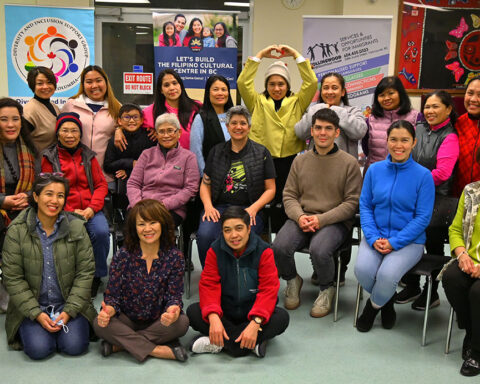After a hesitant start, Canada has picked up its game and appears committed to play a larger role in Asia, the world’s fastest growing economy and most dynamic region. This is clear from the recent visits by Indian Prime Minister Narendra Modi and Philippine President Benigno Aquino.
Although the two countries differ in scale and influence, the visits shared much in common. Both had a strong trade and investment orientation and both played to large, politically active Diasporas.
Narendra Modi’s visit was the first by an Indian Prime Minister in 42 years and was prompted in part by his appreciation for Canada’s early engagement in Gujarat during his tenure as Chief Minister.
It was equally motivated by the prospect of attracting Canadian investment in two priority sectors – infrastructure and manufacturing. Infrastructure is the biggest single bottleneck to faster economic growth, and significant expansion in manufacturing jobs is needed to absorb the 11-12 million young people entering the workforce every year.
The most tangible result of the visit was the signing of a $350 million agreement with Cameco for the long-term supply of uranium. This is the first concrete manifestation of the Nuclear Cooperation Agreement signed in 2013, which removed a major bilateral irritant, and is intended to encourage further collaboration in nuclear and other forms of energy.
Although there was commitment by both Prime Ministers to accelerate finalization of the Comprehensive Economic Partnership (CEPA) and Foreign Investment Protection (FIPPA) agreements, there was no significant movement and the opportunity for a breakthrough was missed.
The foreign leaders see the approximately 1.2 million Indo-Canadians and 800,000 Filipino-Canadians as bridge-builders between the two countries, an important source of remittances, investment and support back home.
The Philippine President’s visit was also a long time coming, the last being in 1997 when former President Fidel Ramos visited. The country is one of the top three fastest growing economies in Asia and, like India, Canada has designated it a trade priority.
Although a smaller market than India ($1.8 billion versus $6.3 billion in merchandise trade), the Philippines is a gateway to Southeast Asia and a founding member of the Association of Southeast Asian Nations (ASEAN) group, which has a collective GDP over $2.3 trillion. It is also chairs the Asia-Pacific Economic Cooperation (APEC) this year.
Similar to the Indian Prime Minister, President Aquino was keen to talk up Canadian investment in infrastructure and other sectors of the Philippine economy and had the opportunity to do so in Ottawa, and with a select group of CEOs in Toronto, as did Modi. There was also an unexpected agreement to begin exploratory discussions about a free trade agreement.
The Philippines has recently been designated as a focus country for Canada’s development assistance program and the visit saw the signing of a framework agreement outlining the specifics of this assistance. Canada’s bilateral assistance program in India ended in 2002.
Security was a common theme in both visits. Prominent on the agenda were the growing assertiveness of China in the region and ongoing terrorist threats in South and Southeast Asia. Canada has an annual Security Dialogue in place with India and signed an agreement for cooperation in security and defence with the Philippines in 2012.
Indian, Philippine Diasporas Underutilized Assets
The highlight, and some say the point of both visits was relations with the large Indian and Filipino Diasporas.
The foreign leaders see the approximately 1.2 million Indo-Canadians and 800,000 Filipino-Canadians as bridge-builders between the two countries, an important source of remittances, investment and support back home. With a federal election six months away, the timing of the visits was felicitous for the Harper government.
For companies, finding a Canadian who is familiar with local business practice in these markets and has ready access to a network of reliable contacts on the ground can be a substantial competitive advantage.
Apart from the political mileage to be gained by courting the two Diasporas, they are underutilized assets. Not in the sense of influencing an ethnic-oriented foreign policy, which is in nobody’s best interest, but as informed stakeholders who can contribute to the policy debate and sometimes play a back-channel role in its implementation.
For companies, finding a Canadian who is familiar with local business practice in these markets and has ready access to a network of reliable contacts on the ground can be a substantial competitive advantage.
Notwithstanding the agreements reached, documents signed and the photo-ops, the most important result of the two visits was reaffirmation that Canada is ready to play a larger role in Asia.
We have been slower than many to recognize and act on the gravitational shift from west to east. Sustained and active engagement is therefore needed to prove our bona fides and secure a place at the table.
Peter Sutherland is the Senior Business Advisor Asia at Aird & Berlis LLP and former Canadian High Commissioner to India and Ambassador to the Philippines.




